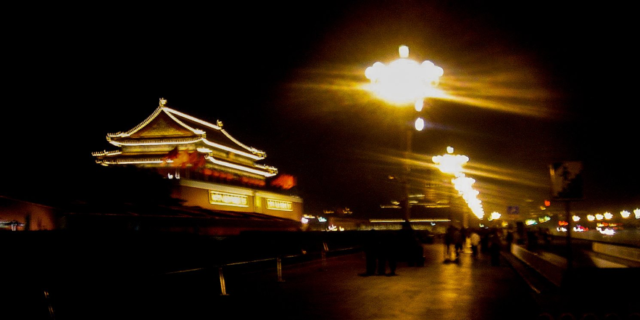
Living in the Day after Tiananmen: A Special China Brief Issue
Publication: China Brief Volume: 18 Issue: 10
By:

A note from the Jamestown Foundation on the occasion of our first issue on human rights in the PRC:
June 5, 2018 marks twenty-nine years since the day after Deng Xiaoping ordered the PLA to forcefully put down pro-democracy protests in central Beijing. A great deal has changed since then. But despite the passage of twenty-nine years, we—all of us—still live in the day after Tiananmen, in real and increasingly important ways.
The PLA’s entry into Tiananmen Square signaled the end of a decade of gradual political liberalization. The subsequent freeze in political reform and free discourse has persisted over the intervening twenty-nine years. That freeze has deepened under Xi Jinping, the current CCP General Secretary, as he has consolidated power within the Party, with him at the center. Progress on what are typically called “human rights”—freedom of expression, freedom of religion, freedom from arbitrary detention and arrest, among others—has moved in retrograde (China Brief, March 5). Even today, the people of the People’s Republic of China still live under the legacy of Tiananmen.
They are not the only ones. Of the many things that have changed in our world since 1989, arguably the most important may be the spectacular economic, diplomatic, and technological rise of the PRC. As a result, far from being a matter of concern only for the people of China, the legacy of Tiananmen now has global implications. In the years since the Square, the CCP has acted ruthlessly to insulate its hold on power from all threats, foreign and domestic. There is no reason to expect that, as its power grows, those efforts will remain confined by its borders.
Where the United States once talked about respect for human rights as one of the preconditions for China’s acceptance into the international community, China now increasingly has the ability to shape what the international community is, and what it stands for. More than ever before, those of us outside China have also come to inhabit the day after Tiananmen.
We therefore ask you to consider the essays in this special issue, the majority of which concern China’s treatment of its own people, in a global light. As China edges towards superpower status, what does China’s treatment of its human rights lawyers, its women, and its Uighur minority—each the subject of one of this issue’s essays—presage for its engagement in other parts of the world? And what do its efforts to build support for its international cybergovernance—the subject of the remaining essay—presage for online freedom of expression everywhere? These are questions we would do well to keep in mind, as we confront the increasingly difficult task of engaging with China in the day after Tiananmen.
This Issue’s Articles:
The Human Rights Record of the CCP Under Xi Jinping
By Joseph Yu-Shek Cheng
Rice Bunnies and Iron Rice Bowls: Women’s Rights and National Security in China
By Siodhbhra Parkin
Cyber Sovereignty and the PRC’s Vision for Global Internet Governance
By Elliott Zaagman
Evidence for China’s Political Re-Education Campaign in Xinjiang
By Adrian Zenz




